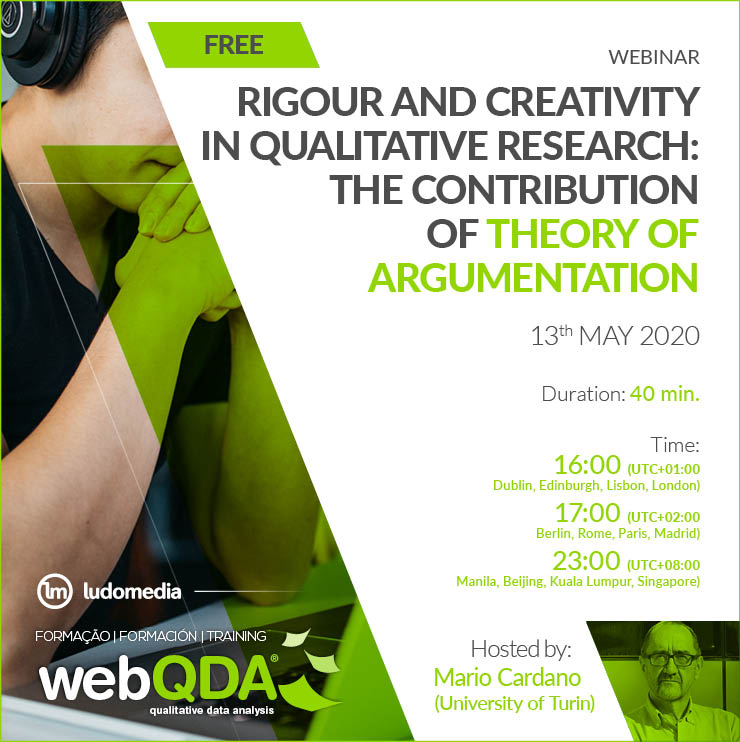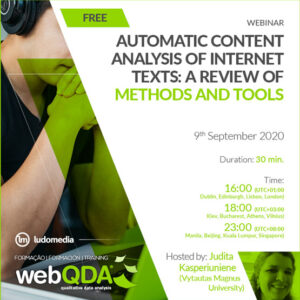Description
Webinar Rigour and Creativity in Qualitative Research: The Contribution of Theory of Argumentation
Hosted by: Mario Cardano (University of Turin)
Qualitative research is one of the most widespread approaches in social research; however, this way of doing research still receives pungent criticisms of the soundness of its results and on the rightfulness of the extension of their scope. All these reprimands are frequently framed within a more general criticism that refers to qualitative research’s lack of rigour, moving from the tacit idea that the only possible form of rigour is that of quantitative research.
On the issue of rigour in qualitative research, there have been two main positions: the post-modernist refusal of this notion, accused of “method-o-centrism”, and the search for a version of rigour alternative to quantitative research. The mainstream in this last path is represented by the diverse versions of Grounded Theory. GT pursues the goal of rigour through an interesting, although questionable, process of sampling (theoretical saturation) and through a codified procedure for data analysis.
The proposal advanced in this webinar goes in the same direction, but with a different gait. The frame proposed for conferring rigour to qualitative research is that of the theory of argumentation, thought as the equivalent, in our territory, of the theory of probability which guide quantitative research. In this perspective, carrying out qualitative research can be thought as a construction of an argument with which we defend the soundness of the research results and the rightfulness of their extension from studied to analogous unstudied cases. The defence of the research results soundness is underpinned on a set of propositional commitments, a set of theoretical assumptions which works as premises of the in-progress argument. Continuously challenged by a dialectical disposition, typical of main contemporary theory of argumentation schools, these propositional commitments mould the plausibility of the conclusions reached (conditional plausibility). Some operative tools for these purposes will be presented, namely, the proleptic argumentation and a set of argumentation schemes, all equipped with a set of critical questions. All these tools combine a logical and semantic dimension, and this aspect will be illustrated through the presentation of one of the most common reasoning in qualitative research, based on the argument from analogy. We use the argument from analogy (usually a theory-laden version of it), both during the fieldwork and the deskwork to invent categories and to build metaphors (the qualitative equivalent of the quantitative statistical models).




Reviews
There are no reviews yet.